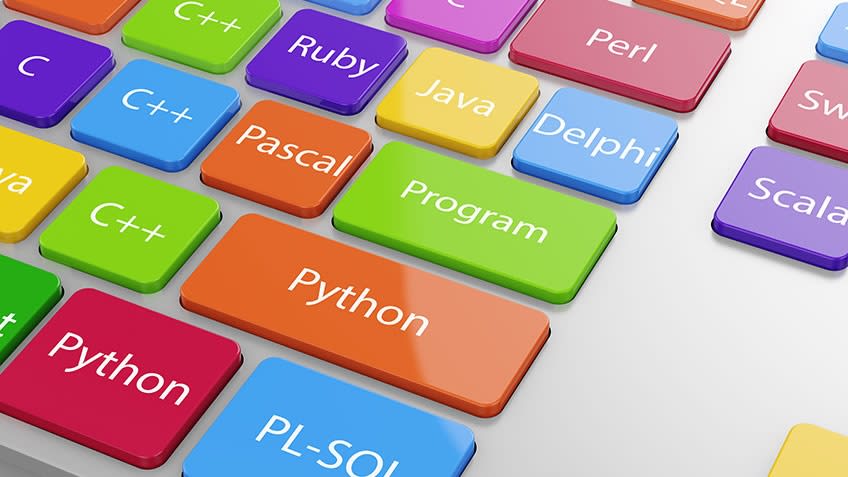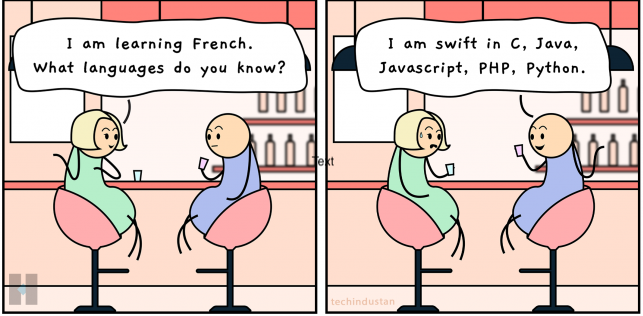There are over 700 different programming languages, so you can imagine how daunting it must be when you have to choose the right one for you to learn and become an expert in. You may have heard of the most popular programming languages such as Python, Javascript, C++ and R. According to Statistic Times, Python was considered the number 1 programming language in Summer 2020.
So how do we choose which programming language to learn?
Before choosing any programming languages, you need to:
- Be focused – When learning anything new, you primarily focus on learning that one thing until you perfect it. You wouldn’t choose to learn 3 different languages such as French, German and Italian at once. If you do this, you will not get the best results as your efforts have been diverted in different directions. When you target your focus on one thing, you are able to grasp and fully understand the intricacies of it. This gives you a stronger foundation to work with and learn more down the line.
- Coding is not easy – there’s a reason why the technology department is lacking labour. It is a tough industry to break into due to the efforts needed to learn a programming language, perfecting it and then building your portfolio to get into the workforce. You need to have patience and make sure you learn every step before moving onto the next one.
Once you have got yourself prepared mentally, you now need to figure out what programming language you want/need to learn. You want to learn a programming language because your end goal is for you to become a software developer in that programming language. So now you need to ask yourself these questions:
- Why do you want to learn to code? Do you want to change careers? Do you want to build something tech-related?
- What interests you? Are you interested in gaming? Creating apps? Or do you simply enjoy the train of thought in programming languages?
- What kind of developer do you want to be? There are so many different developers in different industries, which one do you want to be?
- Where do you want to be in the next 5-10 years? This is a very broad question but I believe it is important to understand where you wish to be and understand what you need to do in order to get there?

Top 10 Programming Languages:
- C
- C++
- C#
- Java
- JavaScript / TypeScript
- Objective-C
- PHP
- Python
- Ruby
- Scala
If you are still a bit confused about which route to take, below are a few tips to get you started off.
Let’s break it down into sectors:
Front-end developer:
If we are talking about front-end web developers, we are talking about the visual representation of what the user sees and interacts with. If this is what interests you, you should begin your coding journey with JavaScript. Javascript is already built within your browser, although many of us never really use it unless you’re a programmer. JavaScript is a text-based programming language that allows you to make web pages interactive, engaging the user. It is vital that you learn the fundamentals of JavaScript, from back-end to front-end before you can venture onto your own personal projects. With the solid knowledge that you gain from learning the back/front end, many people can move onto learning another programming language such as HTML and CSS which will definitely be integrated with your work when working on front-end development. JavaScript is highly recommended in many developer job prospects.
Back-end developer:
Or maybe you are more interested in the nitty-gritty of websites, working with database administration. Back-end development consists of the server-side of an application and the interaction between the database and the browser and ensuring everything on the client-side actually works. The most friendly entry to back-end development is Python, which allows you to work with frameworks such as Flask and Django. Python has excellent data visualisations and is relatively easy to learn, gaining sufficient knowledge to see the speed of development.
Data Science/Machine Learning:
If this is your interest, Python is what you need to learn! There are still other programming languages that you can use to work in this sector, however, Python is currently the gold standard for this sector of coding.
Gaming Development:
Maybe you are the kind of person that wants to create games. If that is you, C# or C++ is the programming language for you. However, there are others that you can look into such as Java, SQL, and HTML5. Gaming programming requires you to learn specific programming languages along with specialising in the following areas: computer graphics, artificial intelligence, audio programming, and more.
But what if I don’t know and I am just confused?
We have all been there, countless times in different parts of our lives. It is statistically proven that an average person change careers 5-7 times in their lifetime, where 30% of the workforce will now change careers or jobs every 12 months. So if you are thinking that you need to get a crack on and figure what programming language you need to choose, first breathe! Changing careers is not easy. It requires patience and a lot of thinking. You can’t expect yourself to jump between careers and it’s going to work out fine.
With all that said, you can spend hours, days, weeks and months watching videos, reading articles like this and asking for advice, but what you need to do is take the first step. Just give it a try. The more time you consume trying to figure out which programming language you want to do, you could give it a try and see if you like it. It is all about trial and error. It’s better if you take the first step and figure out for yourself what you enjoy, then you choose any programming language because it pays the highest or that it’s what everyone else is doing. Remember, you will be the one working the hours when you get your dream job, so do something you enjoy!
We hope this has helped you take the first step in your career change or you simply venturing into a different programming language.
If you would like us at AI Time Journal to further explore something of your interest or have any further questions, please drop us a message on LinkedIn, Twitter or email us: [email protected].

